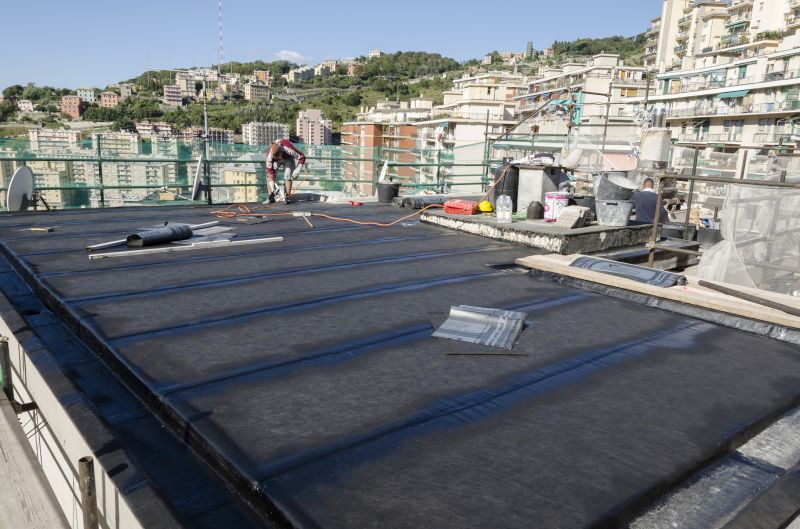Popular Flatwork Installation Products For Professional Results
Explore trusted equipment and supplies designed to make your flatwork projects efficient, accurate, and visually appealing.
 Flatwork installations encompass a variety of projects including patios, driveways, walkways, and flooring surfaces that require durable, level, and well-prepared bases. Achieving a professional finish involves selecting the right products to ensure stability, longevity, and safety. From foundational materials to finishing tools, the array of products available caters to both DIY enthusiasts and professional contractors. Proper planning and the right equipment can make the difference between a surface that lasts and one that quickly deteriorates.
Flatwork installations encompass a variety of projects including patios, driveways, walkways, and flooring surfaces that require durable, level, and well-prepared bases. Achieving a professional finish involves selecting the right products to ensure stability, longevity, and safety. From foundational materials to finishing tools, the array of products available caters to both DIY enthusiasts and professional contractors. Proper planning and the right equipment can make the difference between a surface that lasts and one that quickly deteriorates.
Top Overall Option
Premium Flatwork Base Material
A high-quality, versatile base material designed for various flatwork projects, offering reliable compaction and stability. Its consistent performance helps create a solid foundation for patios, driveways, and walkways, supporting long-term durability and minimal maintenance.
Types of Products For Flatwork Installations
Concrete Mixes
Various formulations tailored for different load requirements and surface finishes, essential for durable flat surfaces.
Asphalt Mixes
Suitable for driveways and pathways requiring flexible, weather-resistant surfaces.
Paver Blocks
Interlocking units used for decorative and functional flat surfaces like patios and walkways.
Leveling Compounds
Materials designed to fill low spots and ensure a flat, even surface prior to final surfacing.
Joint Fillers and Sealants
Products used to fill expansion joints and prevent debris ingress, maintaining surface integrity.
Edge Restraints
Materials that help keep paving units in place and prevent shifting over time.
Curing Compounds
Products that aid in proper curing of concrete, reducing cracking and surface defects.
Bonding Agents
Adhesives that improve the bond between layers or different materials in flatwork projects.
Leveling Screeds
Tools or materials used to achieve a smooth, level surface during installation.
Compaction Equipment
Vibratory plates or rollers used to compact soil or base materials for stability.
Form Release Agents
Products that facilitate the removal of forms after concrete curing without damaging the surface.
Edge Trims and Restraints
Accessories that define the edges of flatwork surfaces and prevent spreading.
Drainage Products
Grates, channels, and pipes that ensure proper water runoff from flat surfaces.
Surface Texturing Tools
Tools or materials used to create slip-resistant finishes on concrete or other surfaces.
Protective Gear
Safety equipment including gloves, masks, and goggles for safe handling of installation materials.
Popular Choices
A common choice for durable flat surfaces, available in various formulations for different projects.
Widely used for driveways and pathways requiring flexible, weather-resistant surfaces.
Popular for decorative and functional flat surfaces such as patios and walkways.
Frequently used to create an even surface prior to final surfacing.
Commonly selected to maintain surface integrity and prevent debris buildup.
Chosen for their ability to keep paving units in place over time.
Popular for promoting proper curing of concrete surfaces.
Used to enhance adhesion between layers or different materials.
Frequently employed for effective soil and base material compaction.
Selected for creating slip-resistant finishes on concrete surfaces.
Commonly used to facilitate water runoff from flat surfaces.
Popular for easy removal of forms after concrete curing.
Essential for safe handling during installation projects.
A key aspect of flatwork installation is surface preparation. This includes grading and leveling, which often require specialized tools such as screeds, compaction equipment, and leveling compounds. Once the base is prepared, surface materials like concrete, asphalt, or pavers are installed. Each of these surfaces may demand specific accessories such as joint fillers, sealants, or edge restraints to maintain structural integrity and aesthetic appeal. Selecting suitable products for each phase of installation ensures a smooth process and a durable finished surface.
Additional products like expansion joints, bonding agents, and curing compounds help control cracking, improve adhesion, and promote proper curing. Safety equipment such as gloves, masks, and protective eyewear are also essential to ensure safe handling of materials. Whether undertaking a small residential project or a large commercial installation, choosing quality products tailored to the specific requirements of the project can facilitate a more efficient workflow and a better end result.
Key Buying Considerations
- Project scale and scope to determine the quantity and type of materials needed.
- Material compatibility with the intended surface finish and load requirements.
- Climate conditions that may affect material performance and curing times.
- Ease of handling and application, especially for DIY projects.
- Durability and long-term performance expectations of the materials.
- Compatibility of different products, such as bonding agents with base materials.
- Cost-effectiveness relative to project budget and desired longevity.
- Availability of products in local markets or through suppliers.
- Safety features and proper protective equipment for handling materials.
- Environmental conditions that may influence curing and setting times.
- Ease of removal or adjustment during installation phases.
- Surface aesthetics and texture preferences.
- Maintenance requirements post-installation.
- Compliance with local building codes or standards.
- Brand reputation and product reviews for reliability.
